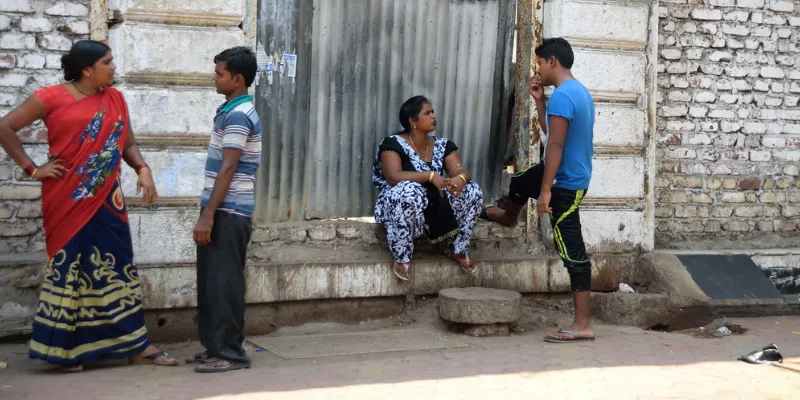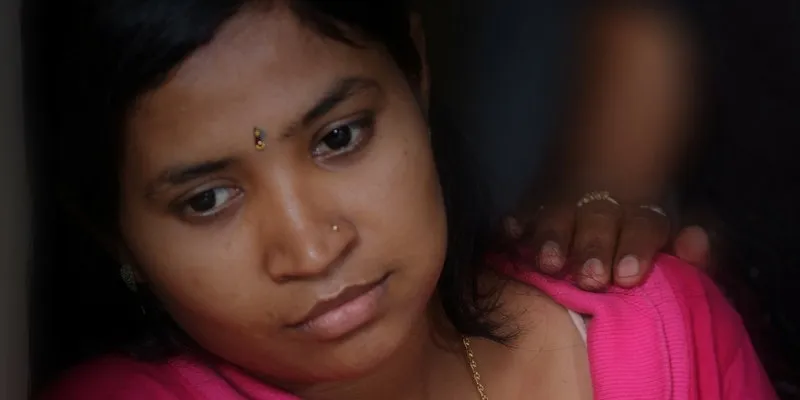How alternative livelihood options empower female sex workers
Vulnerabilities among FSWs in India are multidimensional in nature, with financial security contributing the most. This is why alternative sources of income and livelihood options are a must for them.

Image Credit: Shutterstock
“When my husband passed away, leaving me with the sole responsibility of our two young children, I had no option but to take up sex work for a living. It is my dream to educate our children and give them a better life,” says 36 year-old Gauri (name changed).
Gauri hails from Guntakal town in Andhra Pradesh. Four years ago, her husband’s death left her stranded, with the difficult responsibility of raising their two children single-handedly. Isolated, and with no education or skill for earning a living, she had to enter sex work to take care of her children and continue their education.
In India, most women enter sex work due to poverty and limited economic opportunities. The states of Andhra Pradesh and Telangana are historically known for high HIV prevalence and large number of female sex workers (FSW). For FSWs, complete dependence on sex work as the only source of income breeds financial insecurity and stress, which, in turn, increase the possibility of unsafe sexual practices, leading to sexually transmitted diseases (STDs), and even exposure to sexual and physical violence. According to the National Aids Control Organisation (NACO), nearly two-thirds of the female sex workers in Andhra Pradesh and Telangana, depend solely on earnings from sex work to make a living.
Gauri was brave. She kept up with countless hardships in an attempt to build a better future for her children. But as time passed, it became more and more difficult for her to look after her children.The earnings from sex work now fell short of meeting the basic needs. Her fixed partner refused to care for her children and, in fact, tried to stop her from supporting them.
The relationships between FSWs and their partners are framed by dominant social norms, gender roles, and concepts of partner fidelity.
In most cases, these relationships are characterised by violence and dominance, leaving FSWs vulnerable in the relationship.
While FSWs feel their intimate partner should take responsibility of their children, in terms of healthcare and education, the partners feel that they cannot be expected to accept “fatherly” responsibilities toward children of their FSW lovers. Financial and social vulnerabilities of female sex workers are often exploited by their clients, brothel owners, and pimps, to force them into unsafe sex, as well as to break any existing social ties, so that they can abuse them further. The complex nature of these relationships, coupled with the exploitative potential of sex work -- especially where it is the sole source of income -- pushes FSWs into a vicious cycle of helplessness that usually lasts a lifetime.

Image Credit: Shutterstock
As a single-livelihood sex worker, Gauri’s financial stress was higher, as was her vulnerability. Struggling to make ends meet, and not knowing how she could improve her financial situation, Gauri turned to the Community Organisation (CO) in Guntakal for help. The CO is part of Avahan -- the India AIDS initiative that was launched in 2003 with a focus on preventing transmission of HIV among key populations across six high prevalence states in India.
The Avahan-III programme (2014-17) is the last and final phase of the intervention, focusing on building the capacities of COs to better their skills in programme management and resource mobilisation, as well as to address individual vulnerabilities of key population/high-risk groups to sustain their safe-sex behaviors.
Financial security, social protection, crisis response at individual level, and institutional development at CO level are crucial to address vulnerabilities and essential to provide organised support to FSWs to obtain their social and economic entitlements, such as ration cards, Aadhaar card, bank accounts, gas connections, etc., in addition to benefits from social protection schemes.
Gauri opened up about her woes to the members, leaders, and field workers of the CO, and came to know about the Unified Help Desk (UHD). The UHDs are set up in each CO to facilitate FSWs’ access to different social and economic services. Soon, she applied for a corporation loan through the UHD. Within two months, Rs.60,000 got sanctioned to her, with which she started her own clothing business, dealing in sarees, salwar suits, night dresses, etc.
The income from the business helped Gauri in running her household smoothly. More significantly, by ending her sole dependence on sex work for a living, the business reduced her vulnerability to unsafe sex, and, therefore, to the associated risks of STDs and HIV.

Also read: The inspiring story of two angels on a mission to change the lives of over 13,000 sex workers
Vulnerabilities among FSWs in India are multidimensional in nature, with the dimension of financial security contributing the most (31 percent). Within the domain of financial security, lack of alternative income other than sex work is a leading factor (20 percent). The value of alternative livelihoods for FSWs cannot be overstated.
“My children are now studying in reputed schools. I can afford the fees, and also pay for the books and the uniform, all by myself. It’s a huge accomplishment for me,” beams Gauri.
She now sees herself more as a clothes retailer than a sex worker. She is able to respect her work and herself more now -- a positive spillover of having an alternative livelihood.
Gauri’s story demonstrates how having an alternative livelihood option can allow FSWs to say no to unsafe sexual practices, provide higher financial security, and develop a positive self-image. Eventually, an alternative livelihood can empower FSWs to take decisions independently and shape their own lives, which in turn, can enable them to adopt and sustain low-risk sexual behaviours.
Also read: How community-based organisations enable HIV-affected sex workers to stand tall






